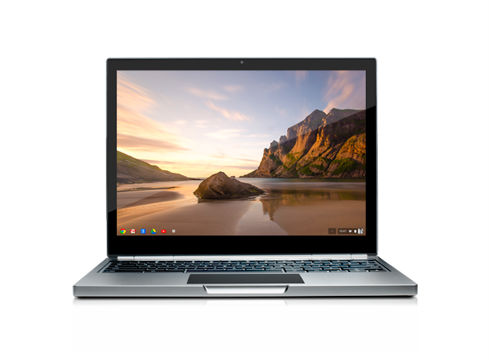Chromebooks Suitable For Some Enterprises, Says Forrester

Google Chromebooks are suited for the enterprise claims Forrester, but not for every business
Analyst house Forrester has made a surprising claim after it proposed that Chromebooks have a place in the enterprise, according to a new research report.
While they’re not for every worker or every scenario, under certain circumstances “organisations stand to benefit greatly from a switch to Chromebooks,” said Forrester Vice President and Principal Analyst J.P. Gownder, lead author on the report.
Windows Threat?
Gownder makes clear that Chromebooks can’t replace most Windows PCs, Macs or tablets.
 “But for companies that are, one, willing segment their workforces (offering Chromebooks to specific classes of workers in a mixed environment with PCs and tablets); two, adopting Gmail and/or Google Apps, or who are, three, deploying the devices in a customer-facing (think kiosk) scenario,” Gownder wrote in a 29 July blog post, “Chromebooks are definitely worth investigating.”
“But for companies that are, one, willing segment their workforces (offering Chromebooks to specific classes of workers in a mixed environment with PCs and tablets); two, adopting Gmail and/or Google Apps, or who are, three, deploying the devices in a customer-facing (think kiosk) scenario,” Gownder wrote in a 29 July blog post, “Chromebooks are definitely worth investigating.”
Google introduced Chromebooks – thin, low-cost laptops running Google’s Linux-based Chrome operating system – in July 2009. Initial sales were modest. In May 2012, Google overhauled Chrome and introduced new hardware. It sped things up, created a new user interface, and made it easier to, as it put it, “get more stuff done.”
On 10 July, Bloomberg, citing research firm NPD Group, reported that Chromebooks were “defying skeptics and gaining share.” In the past eight months, according to NPD, Chromebooks have grabbed a 20 to 25 percent share of the sub-$300 (£197) US laptop market.
“While we were sceptical initially, I think Chromebooks definitely have found a niche in the marketplace,” NPD analyst Stephen Baker told Bloomberg. “The entire computing ecosystem is undergoing some radical change, and I think Google has its part in that change.”
Chromebook Benefits
Forrester’s Gownder, in his blog post on the report, points out two major benefits of moving workers to Chromebooks.
One is that the devices free up IT professionals to “spend time on innovation, not maintenance,” wrote Gownder. Chromebooks, which are designed to seamlessly update themselves so that users always have the latest software and security measures in place, “offer high uptime, low service costs and scalable deployment of new Web-based applications and content.”
The second benefit, he said, is that the devices take advantage of employees’ natural tendency to gravitate toward collaborative computing scenarios.
“Once [corporate Gmail accounts are in place], Chromebooks can promote collaborative work styles,” Gownder continues. “One CIO reported that workers at his company started to use Google Drive and other collaboration tools ‘organically and automatically’ after the adoption of Gmail. Chromebooks reinforce the value of these tools and represent the next logical step in empowering collaboration.”
In its Play store, Google currently sells the $199 (£131) Acer C7 and the $249 (£164) Samsung Chromebook – alongside a high-end Chromebook, the $1,299 (£853) Pixel.
Gownder also points out that for two types of workers, Chromebooks aren’t ideal. In “hyper-portable” business scenarios, tablets may be a better fit, he said. And in companies with a significant presence in China, which has clashed with Google over matters of privacy, “the Chinese government handicaps the performance of Google Apps.” That is not conducive to getting stuff done.
Are you a Google expert? Take our quiz!
Originally published on eWeek.